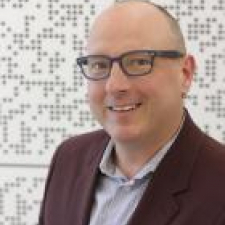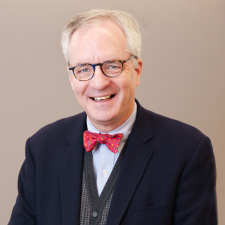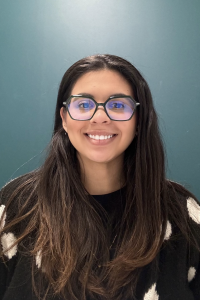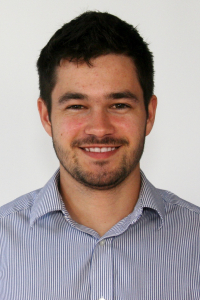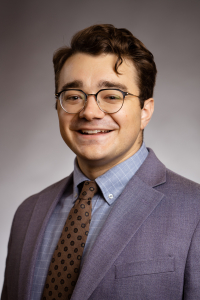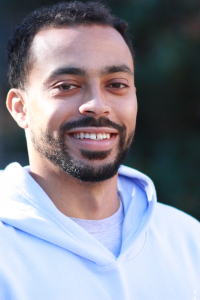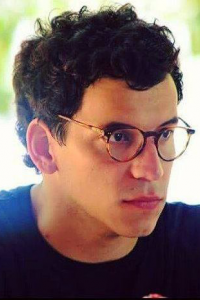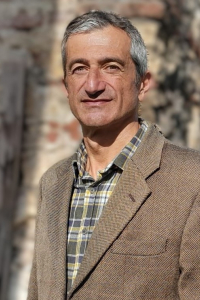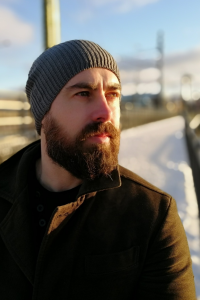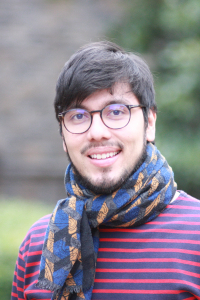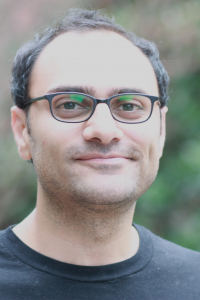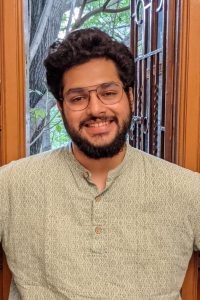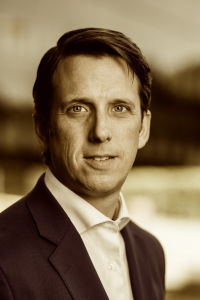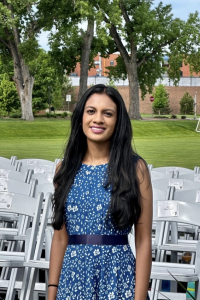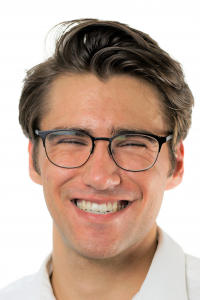The 2024 Summer Institute on the History of Economics will take place at Duke University from June 3, through June 12, 2024. The Institute will focus on giving participants the tools to set up and teach their own undergraduate course in the history of economic thought. There will also be sessions devoted to demonstrating how concepts and ideas from the history of economics might be introduced into other classes. The sessions will be run by Duke faculty members Bruce Caldwell, Kevin Hoover, Steve Medema, and Jason Brent.
Sessions will be held in the Fuqua School of Business. There is no charge for coming to the Institute. Successful applicants who are not locally based will be provided with complimentary single room occupancy housing at the JB Duke Hotel, a reimbursement for travel expenses (up to $750), and a $250 meal card for use at various Duke University dining venues. Participants will also receive electronic access to most readings (3 books will be purchased by Institute attendees).
Duke, which boasts five specialists in the field on its faculty, is home to the Center for History of Political Economy, a center whose mission is to promote and support research in, and the teaching of, the history of political economy. The premier journal in the field, History of Political Economy, is published here.
Eligibility
The Summer Institute programs are designed primarily for PhD graduate students in economics programs in North America. However, applications from students and scholars from other fields and from overseas will be welcomed.
The Institute's faculty will assess applications with regard to:
- Academic and professional accomplishments of the candidate.
- Relevance of the Summer Institute to the candidate's graduate studies and prospective teaching.
- Expression of interest shown by the candidate for historically informed research in economics.
Application deadline and requirements:
Application Deadline: March 10,2024
Requirements:
Applicants should submit items 1. and 2. compiled as a single PDF.
1. A cover letter addressing reasons for applying as well as your interest (academic and/or personal) in the history of economics. The letter should also include a statement of what you want to accomplish by participating in the Institute.
2. Curriculum Vitae or brief biography not exceeding four pages.
Applications should be submitted electronically to chope@econ.duke.edu with the subject line “(name) SI 2024 Application.” If your application is not acknowledged within two business days, please email us again.
Successful applicants will be notified of their selection by late March and should respond within a week by accepting or declining the offer.
2024 SUMMER INSTITUTE
Monday June 3, 2024:
3 pm-6 pm Participants check in to the J. B. Duke Hotel
6 pm Meet in lobby of the J. B. Duke Hotel to walk to Devil’s Krafthouse
6:30 pm, Welcome Dinner at the campus pub, the Devil’s Krafthouse
Tuesday June 4, 2024:
[Note: All morning sessions begin at 9:30. All afternoon sessions begin at 2:30. All sessions will be held in the Dansby Classroom on the 1st level of the Fuqua School of Business.]
9:30 am, Session 1 – Introductions of Program and Participants; Tips on Setting Up a History of Economic Thought Course – Caldwell, Medema
The Greeks and Scholastics – Medema
- Aristotle, Politics and Nichomachean Ethics, excerpts. In Steven Medema and Warren Samuels, eds. The History of Economic Thought: A Reader (2nd ed., New York: Routledge, 2013), pp. 4-17. (Henceforth readings found in this book will be noted by M&S.)
- Thomas Aquinas, Summa Theologica, excerpts, in M&S, pp. 18-34.
- Michael Munger, “They Clapped: Can Price-Gouging Laws Prohibit Scarcity?”Econlib: https://www.econlib.org/library/Columns/y2007/Mungergouging.html
2:30 pm, Session 2 – Mercantilism – Caldwell
- Jacob Viner, “Mercantilist Thought” (1968), in Jacob Viner, Essays on the Intellectual History of Economics, Douglas Irwin, ed. (Princeton: Princeton University Press, 1991), pp. 262-76.
- Thomas Mun, England’s Treasure by Forraign Trade (1664), chapters 2-4, in M&S, pp. 35-44.
- Handout on Historical Background
Supplementary Reading: Robert Heilbroner, The Worldly Philosophers (6th ed., New York: Simon and Schuster, 1986), chapters 1 & 2. A nice intro to the Economic Revolution that spawned more systematic thinking about economics. Lars Magnusson, Mercantilism: The Shaping of Economic Language. London: Routledge, 1994, especially chapters 1 & 2. The historiography of mercantilism.
Wednesday June 5, 2024:
9:30 am, Session 3 – Physiocracy; Intro to Smith – Medema; Caldwell
- François Quesnay, Tableau Economique, in M&S, pp. 106-113.
- G. Vaggi, “Physiocracy,” The New Palgrave.
- Loïc Charles and Christine Théré, “From Versailles to Paris: The Creative Communities of the Physiocratic Movement,” History of Political Economy, vol. 43, 2011, pp. 25-58.
- Handout on Smith
- Adam Smith, The Theory of Moral Sentiments (1766), excerpts.
Supplementary Reading: Loïc Charles, “The Visual History of the Tableau Économique,” European Journal of the History of Economic Thought, vol. 10, 2003, pp. 527-550.
2:30 pm, Session 4 – Smith and the Wealth of Nations - Medema
- Adam Smith, An Inquiry into the Nature and Causes of the Wealth of Nations [1776] R. H. Campbell, A. S. Skinner, and W. B. Todd, eds. (Indianapolis: Liberty Press, 1981). Numbers in parentheses refer to the paragraph numbers of the relevant chapters/sections. Book I, chapters 1, 2, 3 (1, 4), 4 (1, 2, 11-18), 5 (1-7, 17, 21), 6 (1-10), 7, 10c (1-5, 12, 26-30, 33-34, 41-45), 11 (1-9); Book II, chapter 3 (1-3, 19-20, 25, 36); Book IV, chapters 1 (1, 5-6, 9-11), 2 (1-4, 9-12, 38-39, 43-45), 9 (48-52).
[optional evening event]
6:35 pm, Durham Bulls baseball game. Depart from the JB Duke Hotel.
Thursday June 6, 2024:
9:30 am, Session 5 – Malthus and Ricardo – Brent
- Thomas Robert Malthus, An Essay on the Principle of Population (1798), excerpts, in M&S, pp. 210-225.
- David Ricardo, On the Principles of Political Economy and Taxation (1817), excerpts, in M&S, pp. 265-301.
Supplementary Reading: George Stigler, “Ricardo and the 93 Per Cent Labor Theory of Value,” in Essays in the History of Economics (Chicago: University of Chicago Press, 1965), pp. 326-42.
Lunchtime Breakout Session I – Teaching Liberal Arts Students – Caldwell
2:30 pm, Session 6 – Marx - Medema
- Marx, “Preface: A Contribution to the Critique of Political Economy” (1859), in Tucker, pp. 3-6.
- Engels, “Socialism: Utopian and Scientific” (1880), in Robert Tucker, The Marx-Engels Reader, 2nd ed. (New York: Norton, 1978), pp. 683-717.
- Marx and Engels, “The Communist Manifesto” (1848), in Tucker, pp. 469-500, but omit section 3 (pp. 491-99).
Friday June 7, 2024:
9:30 am, Session 7 – Marginalism and Marshall – Medema
- Mark Blaug, “Was There a ‘Marginal Revolution’?” History of Political Economy, vol. 4, Fall 1972, pp. 269-80.
- Handout: Alfred Marshall and the Cambridge School
- Alfred Marshall, The Principles of Economics, 8th ed. (1920): Book I, chapters 1, 4; Book V, chapters 1-3.
Supplementary Reading: John Whitaker, “Alfred Marshall,” The New Palgrave. E. Roy Weintraub, “Burn the Mathematics (Tripos),” How Economics Became a Mathematical Science (Durham: Duke University Press, 2002), chapter 1. Bruce Caldwell, Hayek’s Challenge (Chicago: University of Chicago Press, 2004), chapters 1-5. The last describes the development of the Austrian School and its battles with its historicist, socialist, and positivist opponents.
2:30 pm, Session 8 – Institutionalism – Brent
- Thorstein Veblen, Theory of the Leisure Class [1899], chapters 3 and 4, in M&S, pp. 643-44, 650-75.
- Malcolm Rutherford, The Institutionalist Movement in American Economics, 1918-1947: Science and Social Control (Cambridge: Cambridge University Press, 2011), chapter 1.
Supplementary Reading, Veblen, Theory of the Leisure Class, chapter 2, in M&S, pp. 645-50.
Saturday June 8, 2024:
9:30 am, Session 9 – Defining a Modern Science – Medema
- Mary S. Morgan, “Economics,” in Theodore M. Porter and Dorothy Ross, eds., The Cambridge History of Science, Volume 7: The Modern Social Sciences (Cambridge: Cambridge University Press, 2003), pp. 275-305.
- Roger E. Backhouse and Steven G. Medema, “On the Definition of Economics,” Journal of Economic Perspectives vol. 23 (1), 2009, pp. 221-33.
Lunchtime Breakout Session II – Syllabi – Brent
2:30 pm, Session 10 – The Origins of Macroeconomics – Hoover
- John Maynard Keynes, The General Theory of Employment, Interest, and Money (1936), excerpts (pp. 4-7, 12-17, 96-119).
- Mary Morgan, “Tinbergen and Macrodynamic Models, chapter 4 of The History of Econometric Ideas (Cambridge: Cambridge University Press, 1990)¸ pp. 101-30.
- John R. Hicks, “Mr. Keynes and the ‘Classics’: A Suggested Interpretation,” Econometrica vol. 5 (2), April 1937, pp. 147-59.
Sunday June 9, 2024 – Free Day
Monday June 10, 2024:
9:30 am, Session 11 – Game Theory – Brent
- Robert Leonard, “From Parlor Games to Social Science: von Neumann, Morgenstern, and the Creation of Game Theory, 1928-1944,” Journal of Economic Literature, vol. 33, June 1995, pp. 730-61.
- Paul Erikson, “Dreams of a Final Theory,” chapter 7 of The World the Game Theorists Made (Chicago: University of Chicago Press, 2015), pp. 240-72.
Supplementary Reading: John von Neumann, “On the Theory of Games of Strategy,” translated by Mrs. Sonya Bargmann, ms. https://cs.uwaterloo.ca/~y328yu/classics/vonNeumann.pdf
2:30 pm, Session 12 – Post-World War II Keynesianism – Hoover
- Lawrence Klein, The Keynesian Revolution (London: Macmillan, 1947), chapter 3.
- Paul Samuelson, Economics: An Introductory Analysis (New York: McGraw-Hill, 1948), chapter 12.
4:45 pm – Visit to the Economists’ Papers Archive, Rubenstein Rare Book and Manuscript Library
Tuesday June 11, 2024:
9:30 am, Session 13 – The Market and The State: Possibilities and Limitations – Medema
- A.C. Pigou, State Action and Laisser-Faire,” in Economics in Practice (London: Macmillan, 1935), pp. 107-28.
- Francis Bator, “The Anatomy of Market Failure,” Quarterly Journal of Economics, vol. 72, 1958, pp. 351-79.
- James M. Buchanan, “Positive Economics, Welfare Economics, and Political Economy,” Journal of Law and Economics, vol. 2, 1959, pp. 124-38.
Lunchtime Breakout Session III – Teaching MBA/Business School Students – Brent
- David P. Lepak, Ken G. Smith, and M. Susan Taylor. "Introduction to Special Topic Forum: Value Creation and Value Capture: A Multilevel Perspective," The Academy of Management Review, vol. 32, 2007, pp. 180-94.
2:30 pm, Session 14 – Monetarism and the New Classical Macroeconomics- Hoover
- Milton Friedman & Anna Schwartz, “A Summing Up,” chapter 13 of A Monetary History of the United States, 1867-1960 (Princeton: Princeton University Press,1963), pp. 676-700.
- Kevin Hoover, The New Classical Macroeconomics (Oxford: Blackwell, 1988), chapters 2-4 (pp. 65-73).
Wednesday June 12, 2024:
9:30 am, Session 15 – F. A. Hayek, His Life and Ideas – Caldwell (watch video before class with Handout)
- Handout on Hayek
- Video on Hayek: https://www.youtube.com/watch?v=YI0uXlNFtV0
- F. A. Hayek, “The Use of Knowledge in Society” [1945], reprinted in The Market and Other Orders, edited by Bruce Caldwell, volume 15 (2014) of The Collected Works of F. A. Hayek. Chicago: University of Chicago Press, chapter 3 (pp. 93-104).
- F. A. Hayek, “Postscript: Why I Am Not a Conservative,” The Constitution of Liberty [1960], edited by Ronald Hamowy, volume 17 (2011) of The Collected Works of F. A. Hayek, pp. 519-33.
The final half hour of Session 15 will be a Summer Institute Wrap-Up – no readings.
Participants depart J. B. Duke Hotel by 12 noon
|
Jason Brent attended the very first HOPE Summer Institute in Denver, CO, during the summer of 2011. He is currently a fellow at the HOPE Center and an Adjunct Assistant Professor at Duke University, teaching in the economics department, the Fuqua School of Business, and the Sanford School of Public Policy. In addition to teaching the survey course in the history of economics at Duke for the past four years, Jason has taught courses across the university on economic reasoning that integrate models from the history of economics with contemporary analysis and issues. These courses have been designed to bridge the gap between modern technical economics and the historic models and ideas that still often dominate discussions in the worlds of policy and business. Since 2019, Jason has taught a course that focuses on economic theories about the very rich from St. Thomas Aquinas to Thomas Piketty. Bruce Caldwell is a Research Professor of Economics and the Director of the Center for the History of Political Economy at Duke University. He is the author of Beyond Positivism: Economic Methodology in the 20th Century (1982), of Hayek's Challenge: An Intellectual Biography of F. A. Hayek (2004), and since 2002 has served as the General Editor of The Collected Works of F. A. Hayek, a multi-volume collection of Hayek’s writings. A past president of the History of Economics Society and of the Southern Economic Association, he is currently working on a family-authorized biography of Hayek. When he's not working on Hayek, he doesn't know what to do, but sometimes he fills his time with tennis and golf. |
|
|
Kevin D. Hoover is Professor of Economics and Philosophy at Duke University and the editor of the journal History of Political Economy. A macroeconomist, historian of economics, and philosopher of science, he was written extensively on the history of macroeconomics, including on Keynes, the new classical macroeconomics, monetarism, the Phillips curve, and the history of central banking, and the history of econometrics. He is the author of The New Classical Macroeconomics: A Sceptical Inquiry and has recently completed a book manuscript on the history of the American pragmatist philosopher Charles Peirce’s engagement with economics. His work on the microfoundations of macroeconomics and on causation crossing frequently between econometrics, macroeconomics, and the history and philosophy of economics. He is a past president of the History of Economics Society, a past chairman of the International Network for Economic Method, and a past editor of the Journal of Economic Methodology. He is the author of The Methodology of Empirical Macroeconomics, Causation in Macroeconomics, and Applied Intermediate Macroeconomics.
Steve G. Medema the George Family Research Professor in the Department of Economics at Duke University and the Associate Director of the Center for the History of Political Economy. He is the author of The Hesitant Hand: Taming Self-Interest in the History of Economic Ideas (Princeton, 2009), Economics and the Law: From Posner to Post Modernism and Beyond (Princeton, 2006), and The Economics Book: From Xenophon to Cryptocurrency, 250 Milestones in the History of Economics (Sterling, 2019). He currently serves as the general editor of the Oxford Studies in the History of Economics book series, published by Oxford University Press, and was editor of the Journal of the History of Economic Thought from 1999 to 2008. Dr. Medema's current research projects explore the history of the use of Coase theorem in economics, law and beyond, and the evolution of public finance/public economics in the nineteenth and twentieth centuries. |
|
|
|
Laura Beltran (she/her) is a third-year PhD Economics candidate at the University of Utah. She earned her undergraduate degree in Quantitative Economics and Econometrics from the University of South Florida. Her research interests lie in feminist and stratification economics, particularly as they relate to power structures and economic inequality. In the past, she has conducted research on the history of the Eastern Economic Association (EEA) and the feminist movements of the 19th and 20th centuries.
Ben Brisson is a Ph.D. Candidate in Political Science at the University of California, Irvine. His research interests include political theory, intellectual history, and economic thought. Ben’s dissertation examines the historical and theoretical intersections between the Austrian School of Economics and the Frankfurt School of Critical Theory, focusing on their shared aim of undermining totalitarianism. Other research projects include a critique of the concept of neoliberalism as a framework for understanding corporate power today. He has received support for his research through various fellowships, including the La Verne Noyes Fellowship and the Adam Smith Fellowship at George Mason University. Previously, Ben received a Bachelor of Arts in Economics and Political Science at St. Lawrence University.
Jacob Bruggeman studies modern political economy and intellectual history with a focus on technology, policy, and professional culture in the twentieth century United States. His dissertation, “Securing the System,” explores how regulation, professionalization, and technological change reshaped the practice and significance of “hacking” in the twentieth century U.S. and world. The dissertation investigates how communities of hackers debated the political significance of their practices as government agencies, corporations, and professions examined hacking as a novel genre of expertise—expertise that authorities in the public and private sectors simultaneously deemed dangerous and desirable. While tracing the emergence of a “computer underground” of hacker communities from the telephone hackers or “phone phreaks” in the 1970s to self-styled hacktivists in the 2000s, this dissertation tracks parallel efforts by those within law enforcement agencies, academic disciplines, and a newly formed computer security industry to discipline and then acquire hackers as experts.
Jacob’s work has been supported by the Association of Computer Machinery, the Hagley Museum and Library, the Charles Babbage Institute, and the Briscoe Center for American History. At JHU, his work is supported by the Center for Economy and Society, SNF Agora Institute, the Program in Medicine, Science, and the Humanities, and the History Department. You can find him on X @jacob_bruggeman.
Brendan Brundage is a PhD candidate in Economics at Colorado State University. He received his masters’ degree in Economics from Florida Atlantic University in 2020. His research interests lie in international trade, economic development, and the history of economic thought. His dissertation offers insights on the obstacles and solutions to development in the Caribbean using the above mentioned fields.
Daniel Burnfin holds a PhD in Germanic studies and philosophy from the University of Chicago, where he is currently a postdoctoral Humanities Teaching Fellow. His research concerns the works of Hegel and Marx, political economy, economic history, and the history of economics. Currently, he is editing and translating the writings of Alfred Sohn-Rethel.
Vinicius Curti Cícero - a Ph.D. candidate it the Department of Economics at Colorado State University. He received a masters’ degree (2020) and a bachelors' degree (2018) from the Department of Economics at the University of São Paulo (USP). His research interests are primarily centered around the fields of international trade and economic development, with a focus on exploring the multifaceted impacts of trade-induced economic shocks on the developmental trajectories of emerging economies. His work is published, for instance, in Structural Change and Economic Dynamics. Alongside his research, Vinicius has also served as an instructor at Colorado State University, teaching undergraduate courses in intermediate microeconomics, the history of economic thought and institutions, as well as a graduate-level course in heterodox approaches to economics. For further insights into Vinicius's research and academic pursuits, visit his website at https://vcicero.github.io.
Basile Clerc is a first-year PhD student in economics at the University of Paris, Nanterre. He holds a master’s degree in public administration from Sciences Po Lille and a master’s degree in economics from the University of Paris, Nanterre. His research focuses on the history of price controls, taking perspective from both the history of thought and the history of economic facts, with a particular focus on France for the latter. He published a paper in the Journal of Post-Keynesian Economics proposing a reconstruction of the debate between John Kenneth Galbraith and Abba Lerner on inflation and price control. His next paper will seek to identify the roots of the oppositions surrounding price controls in the economic literature of the 1970s-1980s.
Mehmet Ezer is an assistant professor of Economics at Randolph-Macon College in Ashland, Virginia. He received his PhD in Economics from Boston College in 2018. His research interests include banking, regulation, monetary and macroprudential policies. He teaches courses in economics including Money & Banking, International Economics, Intermediate Macroeconomics, and Principles of Economics.
Claudio Ferri is a doctoral student in economics (third year) at the University of Siena in Italy and a teacher of law and economics at the Italian Ministry of Public Education. He is working on a dissertation on the history of economic thought, focusing in particular on monetary thought in the 18th century in relation to financial innovations, monetary reforms and the transition from the ancient to the modern monetary system. He has presented his work at the workshops of the European School for Training in Economic and Social Historical Research (ESTER) at the Istituto Datini in Prato and at the University of Vienna, at the Adam Smith Tercentenary Week at the University of Glasgow and at the Young Scholar Initiative (YSI) Money view Symposium.
Paul Forrester is a fourth year PhD candidate in Philosophy at Yale University. Before that, he studied philosophy and political science at Duke University, graduating with magna cum laude honors and with a membership in the Phi Beta Kappa society. His research concerns topics in ethics, political philosophy, epistemology and philosophy of social science. His current project concerns the role of natural resources in the theory of distributive justice. Paul has presented his research at venues across the country and internationally, in the UK, Scandinavia, Continental Europe and Canada. His work has appeared in journals such as Utilitas, Episteme: A Journal of Individual and Social Epistemology, and Analysis.
Emily Highkin (she/her) is entering her second year in the Economics PhD program here at Duke. Before starting her PhD, she earned her undergraduate degree from Oberlin College and worked in international finance at the Federal Reserve Board in Washington, DC. She is interested in macroeconomics and in the history of economic thought.
Caro Carl Janse van Rensburg is a lecturer and a doctoral student in economics at the University of the Witwatersrand, Johannesburg. His research interests include the history of economic thought, economic history in Africa, political economy, and feminist economics. He is currently investigating economic thinking in South Africa before Apartheid (pre-1948).
In the fall of 2024 he will start an EU Marie Curie-funded Postdoctoral project based at the Universitat Autònoma de Barcelona and Duke University. The project focuses on the institutional history of the Washington DC-based think tank Resources For the Future (RFF) – as a key node in the development and application of environmental economic thought.
Nestor Lovera Nieto originally hailing from Caracas, Venezuela – affectionately dubbed "the Avila’s Sultana" – I embarked on my academic journey with a bachelor’s degree in economics from the Universidad Central de Venezuela. In 2016, I made the significant decision to pursue my postgraduate studies in France, driven by a passion for deeper scholarly exploration. In 2018, I earned my M.A. in Economics at Université Lumière Lyon 2. In 2022, I obtained a double doctoral degree, a Doctorate in Economics from Université de Reims Champagne-Ardenne, and a Ph.D. in Management from Neoma Business School. My current research focuses on studying the transition between the new welfare economics and the social choice theory. To carry out this analysis I rely mainly on extensive archival work. Currently, I am a Research Scholar at Duke University.
Soroush Marouzi holds a PhD in the History and Philosophy of Science from the University of Toronto. He has a Master's in Economics from the University of New Hampshire. His doctoral dissertation explores what it takes to live a rational life. As a philosopher, he investigates the epistemology of agency and economic rationality. As a historian, he studies the interdisciplinary debates on human nature and rationality that emerged in the wake of the Great War in Cambridge, UK.
Laura Nicolae is a third-year Ph.D. student in Business Economics at Harvard University. Her research focuses on monetary policy, banking, and macroeconomics. Laura previously worked as a macroeconomic analyst at Goldman Sachs.
Hebin Qi is a second-year Ph.D. student in Economic and Social History at the University of Glasgow. His research will examine the policy, practice, and performance of the energy transition in the UK from 1990 to the present, adopting a multi-level perspective. His research interests include political economy, technological innovation, climate change, and sustainability.
Madhav Tipu Ramachandran is a PhD Candidate in the Economics Department at the New School for Social Research. He has a Master's in Economics from SOAS, University of London, and a Master's in Development Studies from the Tata Institute of Social Sciences, Mumbai. His research interests are in ethics, economics, and development.
Carlos Alberto Rivera Carreño is a Ph.D. Candidate in Economics at Lumière Lyon 2 University in France, specializing in the history of economic thought. Previously, he completed a Bachelor's degree in International Studies and Financial Engineering from Korea University (South Korea), and a Master’s Degree in Economics and Social Sciences at the University Paris 1 Panthéon-Sorbonne. Inspired by recent trends in intellectual history, his research attempts to explore the mutual influence between social history and the development of economic ideas. For his dissertation, Carlos is conducting research on the 19th-century French economist Jean-Gustave Courcelle-Seneuil. His forthcoming article, which discusses the republican origins of Courcelle-Seneuil’s ideas on free banking, will soon be published in the Revue d’histoire de la pensée économique.
Mary Sauer is a tech entrepreneur; she and two partners co-founded a digital media software company, bootstrapped it, took it public, and had a successful “exit.” She is interested in the economy of Renaissance Italy and especially how paintings of the late medieval and early Renaissance periods convey important economic trends at the time they were created. She has an MBA from the Wharton School of the University of Pennsylvania, an MLA from Stanford University, and a BFA from Washington University in St. Louis. In 2020, she was a fellow in the Harvard Advanced Leadership Initiative and a Senior Fellow in 2022. Currently, she is serving as an Advisor to the Harvard Project on Workforce.
Joost Sijthoff is a PhD student in economics at University College London. His research aims to understand how markets fail to provide social mobility, how policies affect this, and the political economy that determines what policies are adopted. In addition, he has a research interest in social economics. Joost previously worked as a pre-doctoral fellow at Harvard University and the University of Chicago Booth School of Business.
David Teeters is a first year Ph.D. student in economic history at the London School of Economics. He is also a senior lecturer in finance at IESE Business School. Prior to this, David worked in capital markets for two decades between New York, London, and Singapore. His research interests are in financial market history, specifically the role of early modern capital markets in growth and equality.
Nina Vendhan is an MBA student at the Wharton School of the University of Pennsylvania. Before that, she worked as a venture capital investor and graduated summa cum laude from Harvard University with a degree in economics and mathematics. She is interested in the history of economic thought, market design, innovations in technology, and diverse entrepreneurship.
Louise Villeneuve is currently pursuing her PhD in the history of economics at Goldsmiths University in London, with a research focus on the evolution of the concept of consumption in political economy. Her study delves into the emergence of discourses surrounding consumption and examines the perspectives of economists on this topic during the 18th and 19th centuries. Since 2023, Louise has been a lecturer in Economics at the Institute of Management Studies at Goldsmiths, teaching in the areas of history of economic ideas, economic history and microeconomics. Between 2019 and 2023, she held positions as an associate lecturer at both Goldsmiths and SOAS University of London. Before embarking on her PhD journey, Louise studied Economics at University Paris II in France and Development Economics at SOAS University in London.
Michael Wroblewski is entering his third year in the Economics Ph.D. program at George Mason University. His research interests lie at the intersection of monetary economics and political economy. Currently, he is researching the channels special interests use to benefit from monetary policy and the unintended consequences that follow from it.
Venue
- Classes will be held in the Fuqua School of Business, a 5 minute walk from the JB Duke Hotel, where out-of-town participants will hosted.
Travel
- Duke University is located near downtown Durham. View Larger Map
- RDU International Airport is located 20 miles from campus. Taxi and Uber services are recommended for travel to and from the airport. The approximate cost of Taxi/ Uber services to/ from the airport is $45.
- Campus buses operate on a limited schedule during the summer. More information on transportation can be found at Duke University Transportation Services.
- Participants will be staying at the JB Duke Hotel located five minutes from the Fuqua School of Business. Duke Interactive Map
Weather
- June in North Carolina can range from 60 degrees in the evenings to 90 during the day.
Dining
- Participants will receive a Duke dining card worth $250 that can be used at the Brodhead Center or the Bryan Center.
- The Brodhead Center in the West Union Building is subject to limited summer hours.
- There are also excellent cafeterias in the Fuqua School of Business and in the nearby Law School (However the dinning card is not accepted at these locations).
- For complete details of dining on campus, visit Duke Dining.
- A wide variety of cuisines are available in Durham. There are some great restaurants and bars on Ninth Street and along Main Street downtown. These two streets can be accessed by taking a bus to East Campus and then taking a short stroll to either location.
Library Hours
- See here.
Health
- In the event of a life-threatening emergency, participants should go directly to the Emergency Department (684-2413). If necessary, Duke Police (911 or 684-2444) will provide on-campus transportation to the Emergency Department.
Banking
- ATMs can be located on the garden level of the Bryan Center.
Durham Events/Info
- For a calendar of events and information on things to do in the area, go here.
For questions about the Summer Institute, please email chope@econ.duke.edu.
Applications should be received electronically no later than March 10, 2024. See "How to Apply" for more details. Successful applicants will be notified of their selection by late March and should respond within a week by accepting or declining the offer.
